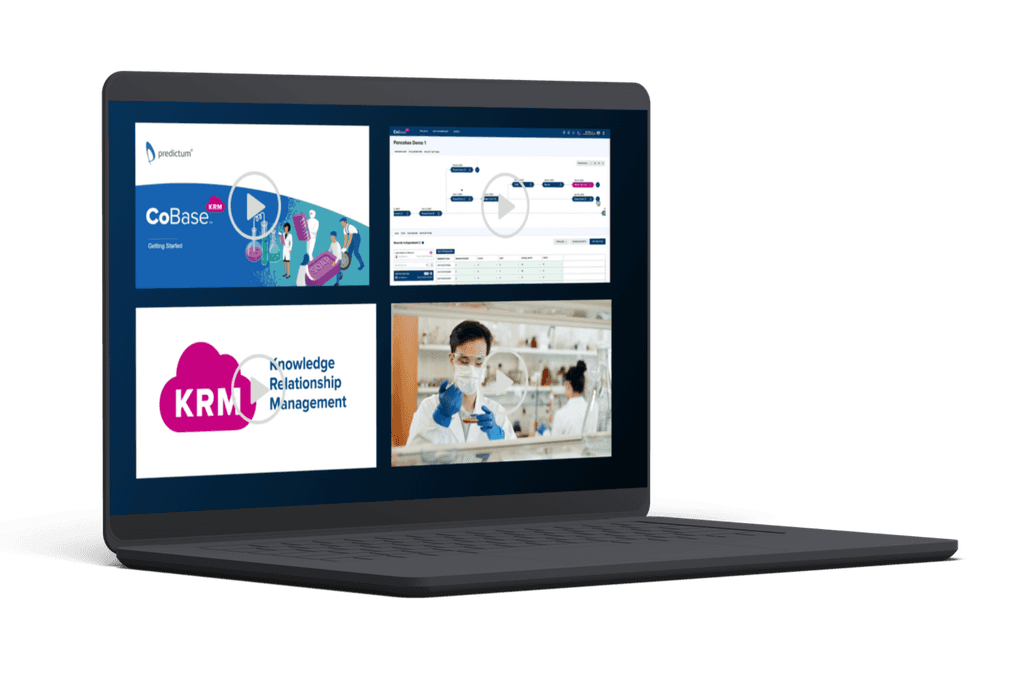Support
Support
When launching a new field of KRM software, inevitably some questions arise.
Have others questions? Reach out to our team.
When launching a new field of KRM software, inevitably some questions arise. Have others questions? Reach out to our team.

Need technical support? Create a support ticket here.
Our customer team is a call or click away!
Need assistance?

Need technical support? Create a support ticket here.
Our customer team is a call or click away!
Need assistance?

Need technical support? Create a support ticket here.
Our customer team is a call or click away!
Need assistance?

Common Questions
Common
Questions
What is Knowledge Relationship Management?
KRM, or Knowledge Relationship Management, comprises a set of software features designed to enable users to effectively manage their experiments and parameters across a series of experiments. Researchers have a relationship with their experiments, and also with their management, which involves reporting on the progress of experiments. Research teams have the ability to track the progress of their experiments and record data in great detail. Lab Management or Upper Management can view the progress made by research teams and assign templates, tasks, and write journal cards about observations, parameters, records, experiments, and projects. Knowledge goes beyond just datasets and includes discussions, emails, power points, and meetings between researchers. When modifying or pivoting in product development, users can easily branch their experiments and add new parameters and platforms.
What is Knowledge Relationship Management?
KRM, or Knowledge Relationship Management, comprises a set of software features designed to enable users to effectively manage their experiments and parameters across a series of experiments. Researchers have a relationship with their experiments, and also with their management, which involves reporting on the progress of experiments. Research teams have the ability to track the progress of their experiments and record data in great detail. Lab Management or Upper Management can view the progress made by research teams and assign templates, tasks, and write journal cards about observations, parameters, records, experiments, and projects. Knowledge goes beyond just datasets and includes discussions, emails, power points, and meetings between researchers. When modifying or pivoting in product development, users can easily branch their experiments and add new parameters and platforms.
What is Knowledge Relationship Management?
KRM, or Knowledge Relationship Management, comprises a set of software features designed to enable users to effectively manage their experiments and parameters across a series of experiments. Researchers have a relationship with their experiments, and also with their management, which involves reporting on the progress of experiments. Research teams have the ability to track the progress of their experiments and record data in great detail. Lab Management or Upper Management can view the progress made by research teams and assign templates, tasks, and write journal cards about observations, parameters, records, experiments, and projects. Knowledge goes beyond just datasets and includes discussions, emails, power points, and meetings between researchers. When modifying or pivoting in product development, users can easily branch their experiments and add new parameters and platforms.
What is CoBaseKRM?
CoBaseKRM is a software solution designed for use by researchers and research teams in various industries such as biotechnology, pharmaceuticals, chemicals, materials science, and engineering. It is especially useful for those who work in highly regulated environments and need to manage complex experiments with multiple variables. CoBaseKRM can be used by a range of professionals, including scientists, engineers, data analysts, project managers, and lab technicians. It is also designed for use by upper management, who can track the progress of research teams and assign tasks and templates. In addition, CoBaseKRM is suitable for use by academic researchers, as well as by those working in industry. It can be used by both small and large teams, and it is highly customizable to fit the specific needs of different research projects and workflows. Overall, CoBaseKRM is designed to help researchers and research teams manage the knowledge and relationships associated with laboratory experiments, with the aim of improving the efficiency and effectiveness of their work.
What is CoBaseKRM?
CoBaseKRM is a software solution designed for use by researchers and research teams in various industries such as biotechnology, pharmaceuticals, chemicals, materials science, and engineering. It is especially useful for those who work in highly regulated environments and need to manage complex experiments with multiple variables. CoBaseKRM can be used by a range of professionals, including scientists, engineers, data analysts, project managers, and lab technicians. It is also designed for use by upper management, who can track the progress of research teams and assign tasks and templates. In addition, CoBaseKRM is suitable for use by academic researchers, as well as by those working in industry. It can be used by both small and large teams, and it is highly customizable to fit the specific needs of different research projects and workflows. Overall, CoBaseKRM is designed to help researchers and research teams manage the knowledge and relationships associated with laboratory experiments, with the aim of improving the efficiency and effectiveness of their work.
How CoBaseKRM is different from LIMS software?
LIMS is primarily focused on managing the samples and data generated by laboratory workflows. It provides a centralized system for tracking samples, managing workflows, and capturing data. LIMS can help with tasks such as sample tracking, data management, and data reporting. It is typically used in regulated environments such as clinical research, pharmaceuticals, and environmental testing. CoBaseKRM, is focused on managing the knowledge and relationships associated with laboratory experiments. It provides a platform for researchers and teams to collaborate on experiments, manage parameters, and track progress. CoBaseKRM is designed to help researchers manage complex experiments with multiple variables and track the results of those experiments over time. It is useful for teams working on research and development projects, as well as for scientists and engineers who need to manage and analyze large datasets. In summary, LIMS is focused on managing the samples and data generated by laboratory workflows, while CoBaseKRM is focused on managing the knowledge and relationships associated with laboratory experiments. While there may be some overlap in functionality, the two systems are fundamentally different and serve different purposes.
How CoBaseKRM is different from LIMS software?
LIMS is primarily focused on managing the samples and data generated by laboratory workflows. It provides a centralized system for tracking samples, managing workflows, and capturing data. LIMS can help with tasks such as sample tracking, data management, and data reporting. It is typically used in regulated environments such as clinical research, pharmaceuticals, and environmental testing. CoBaseKRM, is focused on managing the knowledge and relationships associated with laboratory experiments. It provides a platform for researchers and teams to collaborate on experiments, manage parameters, and track progress. CoBaseKRM is designed to help researchers manage complex experiments with multiple variables and track the results of those experiments over time. It is useful for teams working on research and development projects, as well as for scientists and engineers who need to manage and analyze large datasets. In summary, LIMS is focused on managing the samples and data generated by laboratory workflows, while CoBaseKRM is focused on managing the knowledge and relationships associated with laboratory experiments. While there may be some overlap in functionality, the two systems are fundamentally different and serve different purposes.
© 2023 Predictum Inc. All rights reserved.
Suite 600
Phoenix, AZ 85016
USA
2300 Yonge Street, Suite 1600
Toronto, ON M4P 1E4
Canada
© 2023 Predictum Inc. All rights reserved.
Suite 600
Phoenix, AZ 85016
USA
2300 Yonge Street, Suite 1600
Toronto, ON M4P 1E4
Canada
© 2023 Predictum Inc. All rights reserved.
Suite 600
Phoenix, AZ 85016
USA
2300 Yonge Street, Suite 1600
Toronto, ON M4P 1E4
Canada
© 2023 Predictum Inc. All rights reserved.
Suite 600
Phoenix, AZ 85016
USA
2300 Yonge Street, Suite 1600
Toronto, ON M4P 1E4
Canada
© 2023 Predictum Inc. All rights reserved.
Suite 600
Phoenix, AZ 85016
USA
2300 Yonge Street, Suite 1600
Toronto, ON M4P 1E4
Canada
